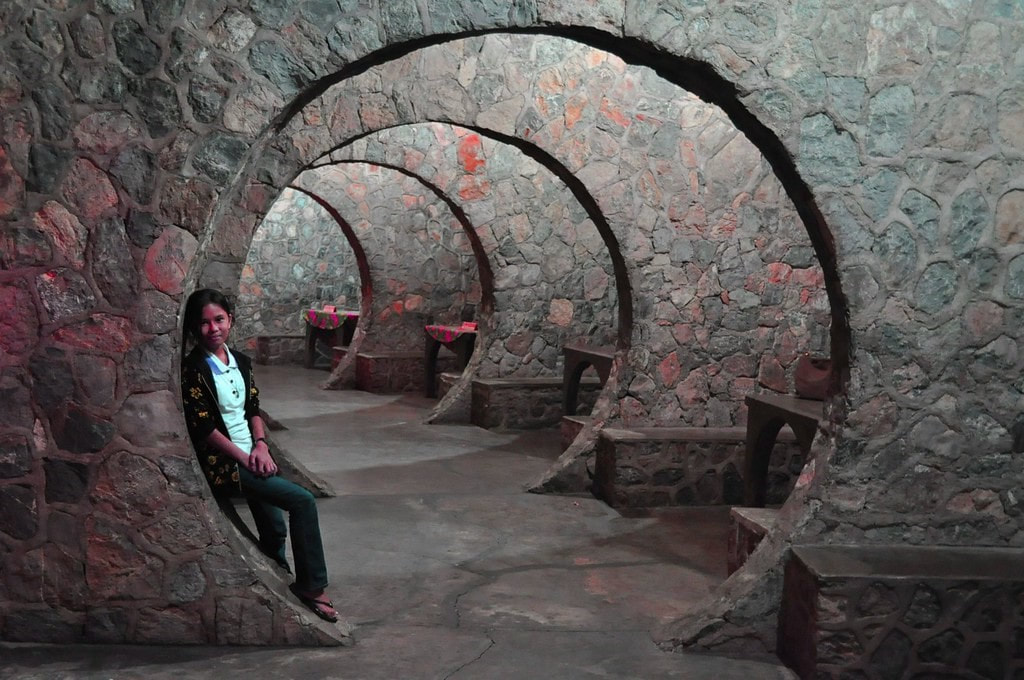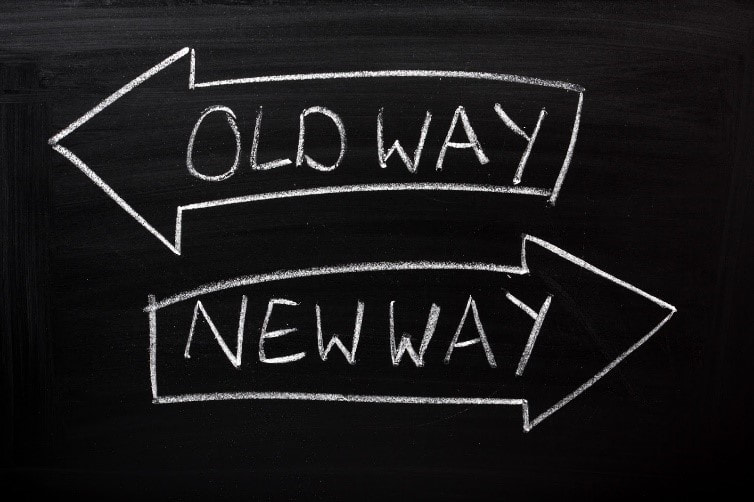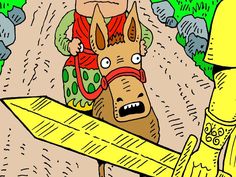 Repetition is the cornerstone of recovery In a conversation with his rabbi, a friend of mine many years ago mentioned how much he appreciated on Shabbat morning the meditative paragraph following the Amidah that begins: אֱלֹהַי, נְצוֹר לְשׁוֹנִי מֵרָע, וּשְׂפָתַי מִדַּבֵּר מִרְמָה וְלִמְקַלְלַי נַפְשִׁי תִדֹּם, וְנַפְשִׁי כֶּעָפָר לַכֹּל תִּהְיֶה -- My God, keep my tongue from evil and my lips from lies. Help me ignore those who slander me. Let me be humble before all. My friend appreciated this paragraph because since it was hard for him to keep his own tongue from evil and lips from lies and to practice humility, he benefited from this weekly Shabbat morning reminder. Without missing a beat my friend’s rabbi quipped: you’re right it is hard to remember these things. That’s why we recite those words three times every day in each of our daily prayers. This week we begin the Book of Deuteronomy, also called Mishneh Torah-- a repetition of the Torah. Why is Deuteronomy called a repetition of the Torah? Well, because it is just that – a repetition of laws and narratives already documented in the four previous books of the Torah. So, if repeating a prayer that encourages humility on a regular basis was helpful for my friend, could it be that repeating stories in the Torah might help the Israelites remember to follow God’s laws? That would seem to be part of Moses’ motivation, especially since his time with the Israelites was coming to an end and he was perhaps feeling compelled to tell the Israelites one last time what he thought they should know. What’s good for Moses and the Israelites can only be good for the rest of us. So at the risk of “repeating” myself, pardon me if I reiterate -- repetition is the cornerstone of recovery. Shabbat Shalom, Ellie  The higher the expectations the lower the serenity. Keep your boundaries high, your expectations low, and your heart open. A boundary is a barrier; something that separates two entities. On a personal level it is a space between you and another individual-- a space where you begin and the other person ends. Boundaries are also limits created by a person to help identify reasonable, safe and permissible ways for others to behave around them. Having our own personal physical space helps each of us feel safe and secure, and while a boundary can be both physical and emotional not all boundaries are healthy. Healthy boundaries promote feelings of safety and security, while unhealthy boundaries can make us feel attacked, manipulated and controlled. In the second of this week’s double Torah portion, Matot/Masei, God delineates Israel’s boundaries. For example, Israel’s northern boundary will run through what is today, Lebanon: וְזֶה־יִּֽהְיֶ֥ה לָכֶ֖ם גְּב֣וּל צָפ֑וֹן מִן־הַיָּם֙ הַגָּדֹ֔ל תְּתָא֥וּ לָכֶ֖ם הֹ֥ר הָהָֽר: מֵהֹ֣ר הָהָ֔ר תְּתָא֖וּ לְבֹ֣א חֲמָ֑ת וְהָי֛וּ תּֽוֹצְאֹ֥ת הַגְּבֻ֖ל צְדָֽדָה: וְיָצָ֤א הַגְּבֻל֙ זִפְרֹ֔נָה וְהָי֥וּ תֽוֹצְאֹתָ֖יו חֲצַ֣ר עֵינָ֑ן זֶה־יִּֽהְיֶ֥ה לָכֶ֖ם גְּב֥וּל צָפֽוֹן This shall be your northern boundary: draw a line from the Great Sea to Mount Hor; from Mount Hor draw a line to Lebo-hamath, and let the boundary reach Zedad. the boundary shall then run to Ziphron and terminate at Hazar-enan. That shall be your northern boundary. (Num. 34:7-9) God also stipulates cities of refuge where those who commit accidental manslaughter can seek protection from individuals who might desire to take revenge on them. Both of these examples describe physical or external boundaries, but the cities of refuge can also be viewed as providing an emotional boundary between the refugees and those who might do them harm. This emotional boundary provides an opportunity, albeit a mandated one, for the refugee to contemplate his/her crime of accidental manslaughter. We can all benefit not only from establishing boundaries in our lives but also from respecting the boundaries of others. Through this process we can determine who we want to be, how we want to interact with others, as well as learn how to take responsibility for the choices we make. As in the example of the cities of refuge, setting both physical and emotional boundaries prevents others from taking advantage of us while we begin to find our voice and learn how to use it. So keep your boundaries high, your expectations low and your heart open. Shabbat Shalom. Ellie  Nothing changes if nothing changes For some change can be scary and unwelcome, while others welcome change with open arms. But even if we want to change or know we need to change, fear of the unknown can result in hanging on to the status quo no matter how bad it might be for us. Remember those pesky Israelites who with the memory of slavery still fresh in their minds, longed to go back to Egypt-- where they could eat their fill of bread (Ex. 15:3)? As the old saying goes-- better the devil we know than the devil we don’t. In this week’s Torah portion Pinchas in the Book of Numbers, five gutsy sisters -- Zelophehad’s daughters Mahlah, Noa, Hoglah, Milcah, and Tirzah--challenge the laws of inheritance after their father dies leaving no sons. They could have settled for the status quo which did not allow them to inherit their father’s land and reconciled themselves with the notion their father’s lineage would be lost just because he had no sons. Instead, they saw an opportunity to change their lives and the lives of other women. Pleading with Moses who then pleaded with God, a new inheritance law was instituted benefiting daughters in cases where there were no sons. אִ֣ישׁ כִּֽי־יָמ֗וּת וּבֵן֙ אֵ֣ין ל֔וֹ וְהַֽעֲבַרְתֶּ֥ם אֶת־נַֽחֲלָת֖וֹ לְבִתּֽוֹ: If a householder dies without leaving a son, you shall transfer his property to his daughter (Num. 27:8) Even when motivated by economics or the desire to get our lives back on track, change is hard because it takes us out of our comfort zone. But, as the example of Zelophehad’s daughters suggests, change is possible when we are able to move beyond our comfort zone and do what is necessary to implement that change. On the other hand, if we can’t or won’t do what is necessary then nothing changes if nothing changes. Shabbat Shalom Ellie  Is your program powered by will power or a higher power? How often have we thought to ourselves – if only I had more willpower, then I would eat better, exercise more regularly, stop procrastinating and in general, achieve so much more in my life. In reality, it isn’t too difficult to be successful at exerting willpower over ourselves. But that success is often short lived because sustaining willpower over long periods of time is at the very least, mentally exhausting. Will power might do it in the short run but perhaps there is another place to look for help in the long run. In this week’s Torah portion Chukat/Balak, we find the story of Balak the king of Moab and an oracle named Balaam. To stave off an attack by the Israelites, Balak summons Balaam and his skills as an oracle to curse the Israelites in order to either keep them at bay or defeat them. Ultimately agreeing to do as Balak wishes, Balaam hops on a donkey to make his way to Moab. Suddenly, in the middle of the journey the donkey spots an angel standing in the middle of the road and swerves into a field to avoid it. Unaware of the angel’s presence, Balaam beats the donkey wishing only to get back on to the road and be on their way. But the donkey continues to see what Balaam doesn’t see or refuses to see, and each time Balaam uses his will to force the donkey to obey. Finally וַיְגַ֣ל יְיָ֘ אֶת־עֵינֵ֣י בִלְעָם֒, God opens up Balaam’s eyes and at long last, he sees the angel standing in front of him. By relying solely on willpower Balaam, unable or unwilling to grasp what is directly in front of him, is determined to have his way. Although his way works for a little while, it is physically demanding—until at long last, God opens Balaam’s eyes. Applying willpower is much like swimming upstream with chains on our legs. We can do it but it takes a lot of focus and energy and eventually we are worn down. Better to swim downstream free of chains. Once Balaam’s eyes are opened he is able to do just that. He is able to see the barrier in front of him and realize an easier way forward-- by powering his program not through willpower, but through a higher power. Shabbat Shalom, Ellie |
Archives
May 2024
|
OFFICE Hours
|
Telephone802-773-3455
|
Email ADDRESS |

 RSS Feed
RSS Feed